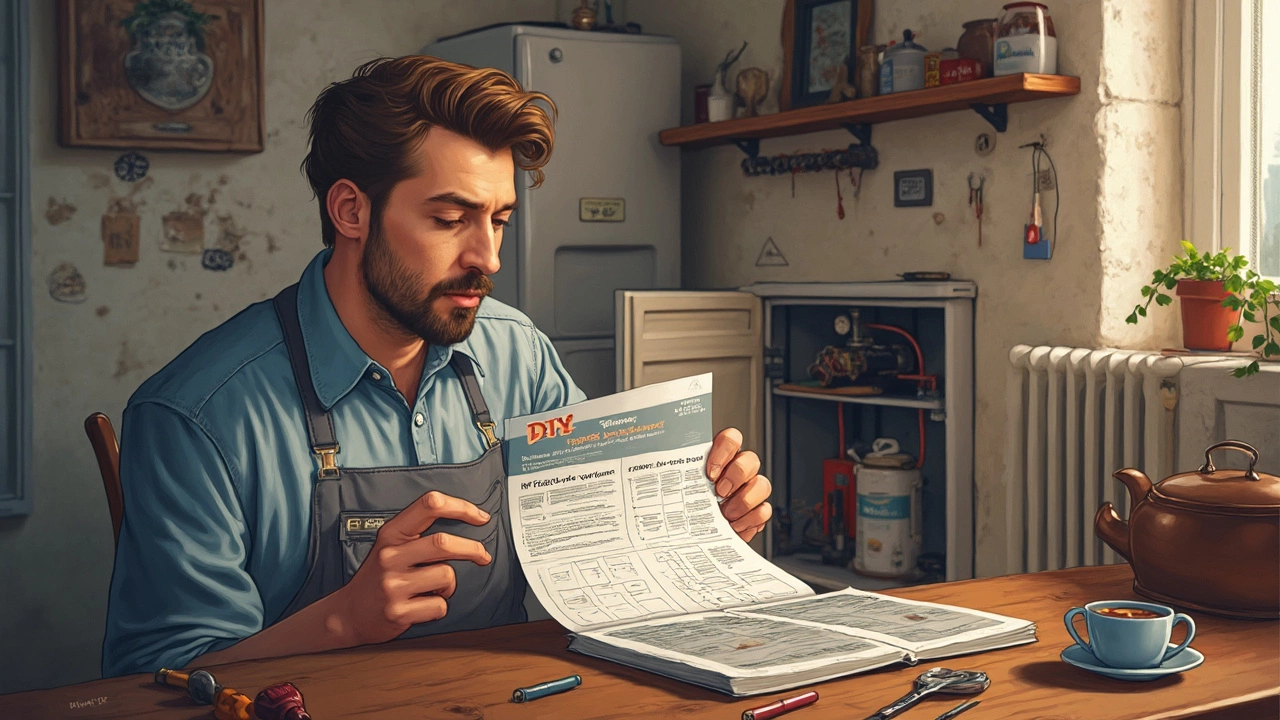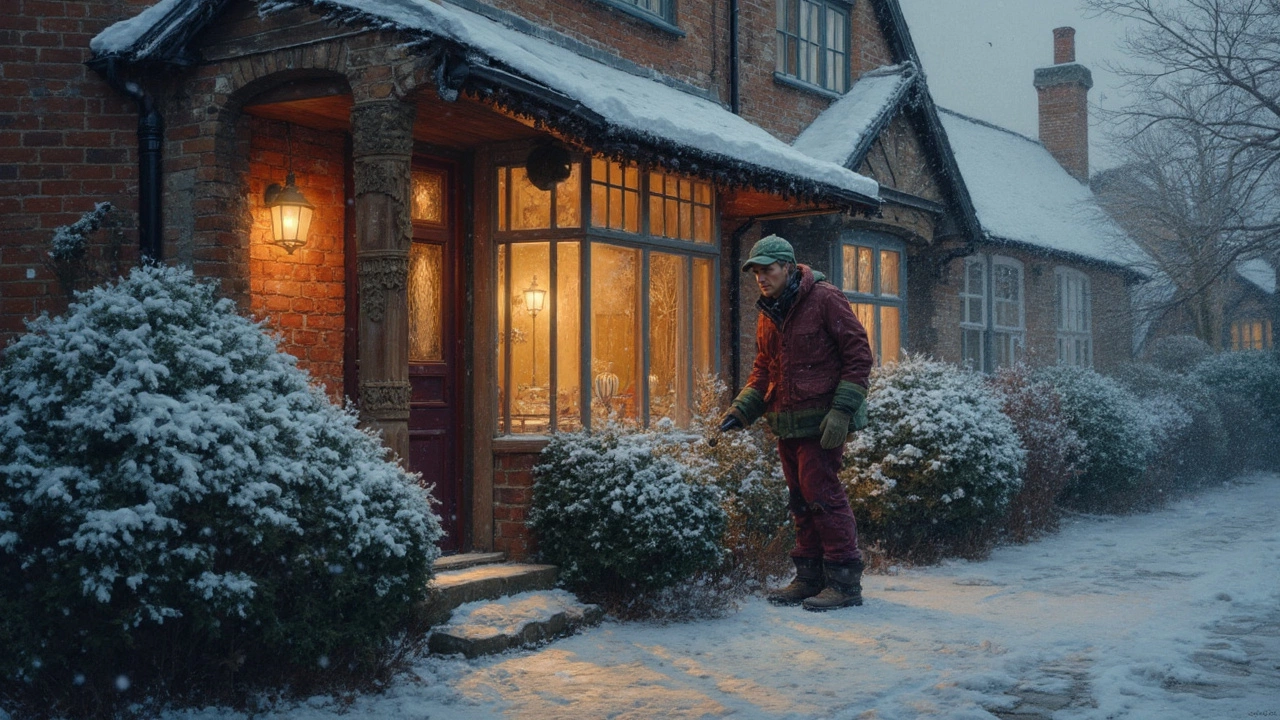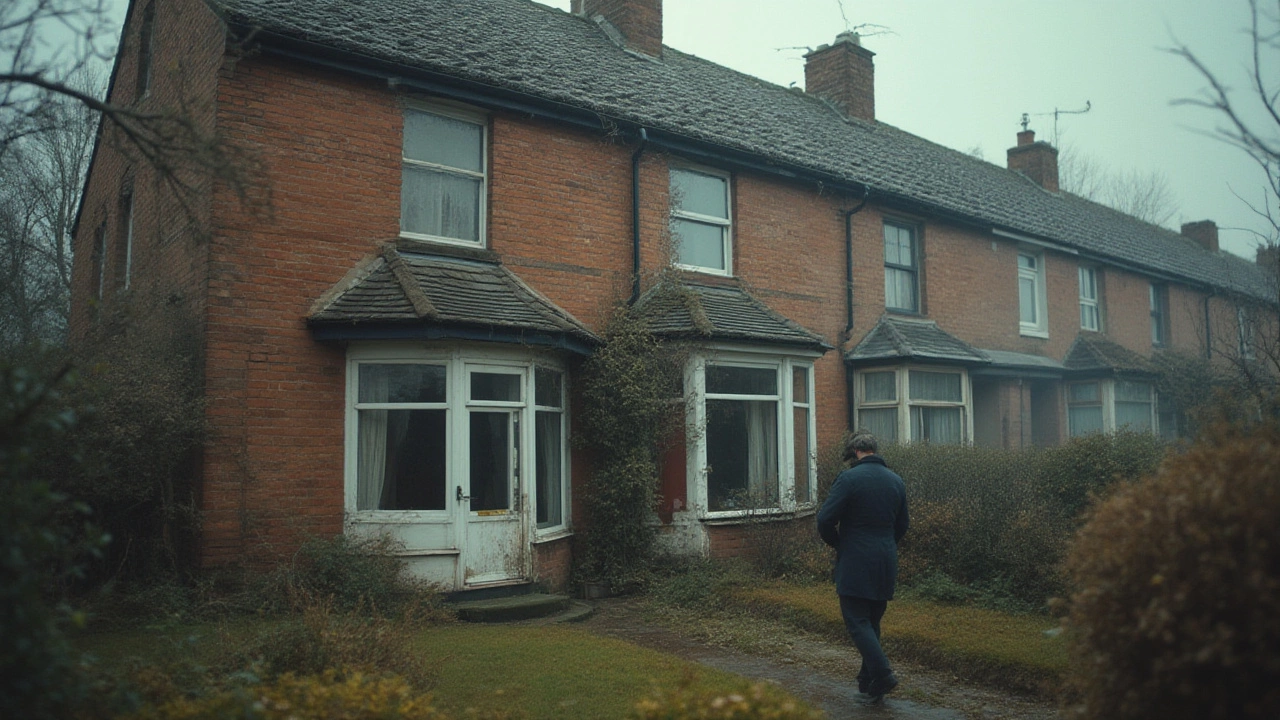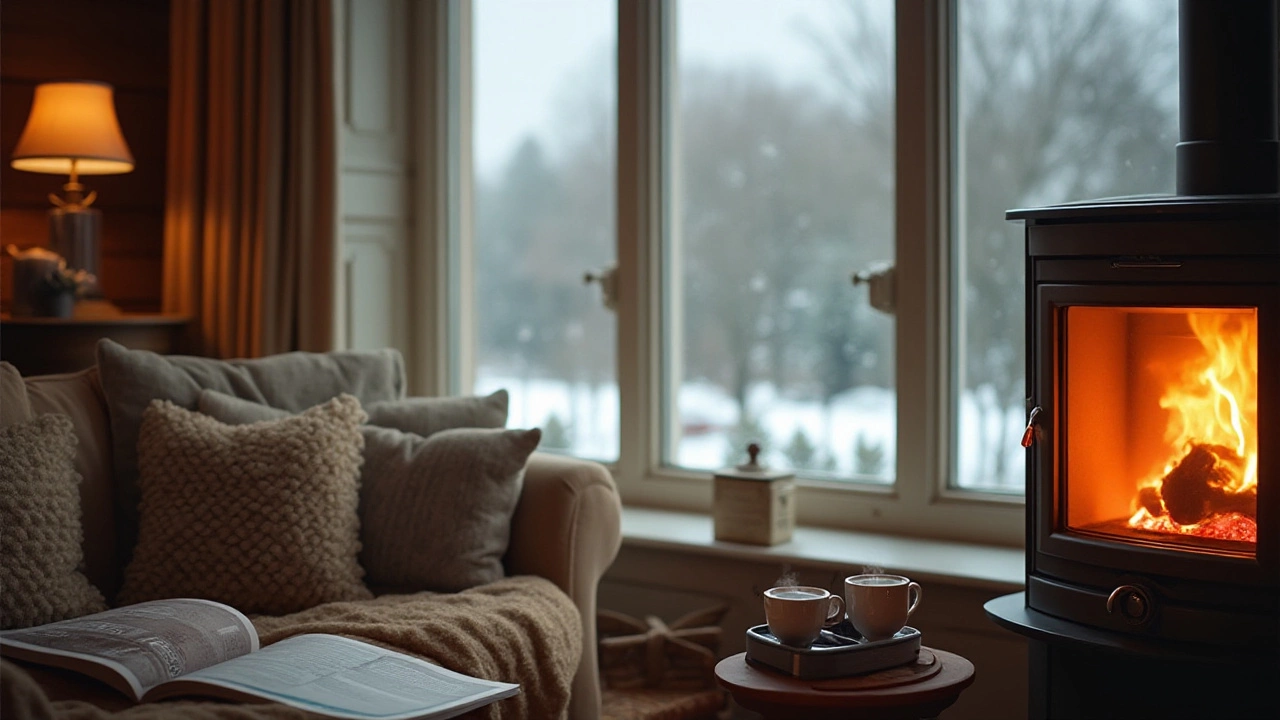So, you're thinking about rolling up your sleeves and giving that boiler a once-over yourself? It's tempting to try and save a few bucks by taking on home maintenance tasks, but when it comes to boilers, it's not all straightforward. Boilers, those not-so-little boxes of magic that keep us warm, need some TLC to function safely and efficiently.
First off, safety is big. We're talking gas lines, high temperatures, and potential carbon monoxide—all stuff you don't want to mess up. If there's any doubt, it might be worth having a pro take a look. But don't stress, there are some basic checks you can comfortably handle yourself without venturing into dangerous territory.
Start simple. Just making sure the pressure gauge reads correctly is a good habit. Low pressure? That's typically an easy fix. You'll also want to look out for any visible leaks or strange noises. If you hear banging or notice any odd smells, it’s time to step back and reassess. These might be signs that it’s best left to the experts.
- Introduction to Boiler Maintenance
- Safety First: What You Need to Know
- Basic Checks and Maintenance You Can Do
- When to Call in the Professionals
- Common Mistakes and How to Avoid Them
- Conclusion: Balancing DIY with Professional Help
Introduction to Boiler Maintenance
Boilers are at the heart of our home's heating system. They chug away quietly, working hard to keep us comfortable, but when was the last time yours got a little love? Boiler maintenance is crucial to keep it running smoothly and safely. Think of it like a car; regular check-ups prevent breakdowns and save you from chilly surprises in the middle of winter.
The good news is, understanding a bit about your boiler isn't as complex as you might think. Let’s break down the basics. Most boilers are either combi (which provide instant hot water) or system boilers (which store hot water in a cylinder). Whichever you have, a little upkeep goes a long way.
Regular maintenance can improve efficiency, lower your energy bills, and extend the lifespan of your equipment. A well-maintained boiler can save you a small fortune long term, as they are less likely to break down and can run more efficiently.
How Boilers Work
At the core, boilers heat water using gas or oil and then deliver it throughout your home via radiators or underfloor systems. When they're in good shape, this process is smooth; when it's not, you'll notice the difference in lukewarm showers or dodgy heating.
Basic Boiler Care Everyone Should Know
- Check the Pressure: It's as simple as checking the gauge on the boiler. If the pressure is below 1, it's time to top it up.
- Look for Leaks: Any sign of water around your boiler could indicate a problem. It’s worth calling a professional if this happens.
- Listen for Strange Noises: Boilers are chatty when problems arise. If you hear banging or clanking, you’ll want to investigate further or call in support.
- Ventilation: Make sure your boiler has plenty of room to 'breathe'. Blocked vents can lead to overheating or worse, carbon monoxide buildup.
Maintaining your boiler isn’t just about preventing issues; it’s about optimizing your entire home heating system. So, grab that manual, give it a read-through, and you’ll already be ahead in the DIY boiler repair game.
Safety First: What You Need to Know
Before you go ahead with your DIY boiler repair, let's talk safety. Messing around with a boiler is no time for shortcuts. Seriously, handling a boiler maintenance task carelessly can lead to some nasty consequences, no one wants a dangerous mishap at home.
First off, always make sure your boiler is switched off and cooled down before you start checking things over. It might sound obvious, but it's a step some folks skip when they're in a hurry. Trust me, you don't want to find out why that's a bad idea the hard way.
Beware of Gas Leaks
If you're dealing with a gas boiler, you're on high alert for leaks. Got a funny smell in the air? That's a red flag. Natural gas has a distinctive smell for a reason—it's supposed to alert you to leaks. If you suspect anything, stop what you're doing, ventilate the area, and call in a professional immediately.
Carbon Monoxide: The Invisible Threat
Carbon monoxide is the silent killer. Without a detector, you'd never know it's there until it's too late. A carbon monoxide alarm is an absolute must if you’re tinkering around with boiler maintenance. Make sure it's working properly before you dive in.
Basic Safety Gear
At the very least, you should have some gloves and goggles handy. Think of them as your first line of defense against accidental burns or debris while doing your boiler checks.
Understanding Your Limits
Know what you don't know. It's okay to admit when a task is outside your comfort zone. For instance, messing with electrical components or trying to fix a fuel leak? Those are jobs for licensed professionals. The last thing you need is to turn a manageable issue into a full-blown disaster.
Emergency Contact Info
Have the number of a professional boiler service on hand, just in case. You don’t want to be frantically searching for someone during an emergency.
If you remember these tips and stay cautious, you’ll be in a much better position to handle those basic checks safely.
Basic Checks and Maintenance You Can Do
Tackling some boiler maintenance yourself isn't as daunting as it sounds. Start with a routine check-up that's easy on your hands and mind. But remember, safety's the name of the game, so let's dive into those practical steps.
Check the Pressure
Your boiler's pressure gauge should be your go-to starting point. Ideally, the pressure should be between 1 and 2 bar when the system is cool. If it's lower, here's what you do:
- Locate the refill valve, usually found in the pipework below the boiler.
- Turn off the boiler and let it cool.
- Gently turn the valve to allow water in, watching the pressure rise.
- Close the valve once the pressure's right, then turn the boiler back on.
This simple task helps maintain efficient heating and consistent boiler performance.
Bleed Your Radiators
Cold patches on radiators can mean trapped air, causing uneven heat distribution. Don't worry, it’s fixable:
- Turn off the heating system and let the radiators cool down.
- Use a radiator key to slowly turn the valve on each radiator top, allowing air to escape.
- Once water starts trickling out, tighten the valve quickly to stop it.
- Check your boiler pressure after bleeding, as it may need topping up.
Bleeding radiators is an easy task that can significantly enhance home heating.
Inspect for Leaks and Noises
Even minor leaks can wreak havoc if ignored. Keep an eye out for any damp spots around the boiler and the pipes. Strange noises like banging or gurgling might indicate trapped air or a problem with the pump mechanism.
| Common Issues | Possible Causes |
|---|---|
| Whistling or Kettling | Limescale build-up |
| Gurgling Sounds | Air in the system |
If you spot any of these signs, it might be time to call in a professional. While some issues might seem solvable, tackling them without the right knowledge could lead to bigger problems.
Doing these basic checks and maintenance might not turn you into a heating engineer, but it will save you time and maybe even cash by catching problems early. With these tips in your toolkit, you're one step closer to becoming a savvy home-maintenance hero!
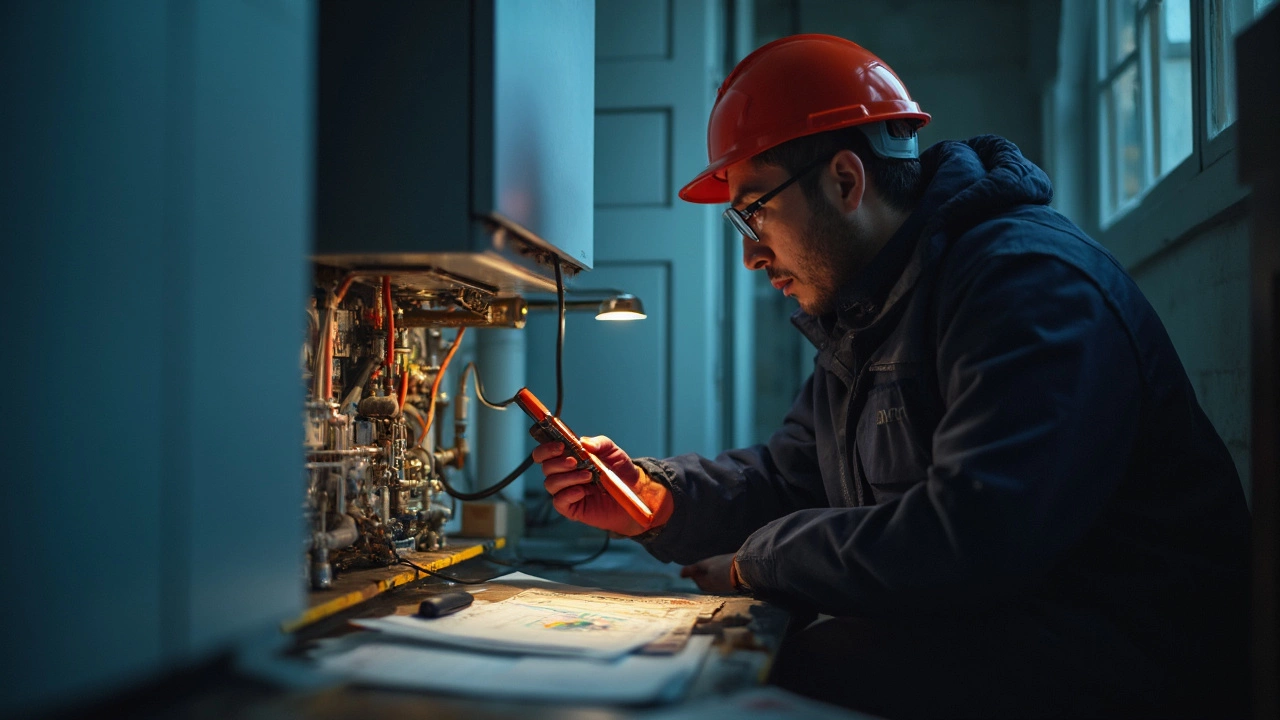
When to Call in the Professionals
Alright, so you've done your basic checks, but things still seem off. At this point, it's crucial to know when to rope in the experts. While handling minor boiler maintenance tasks can be a weekend project, not all issues are DIY-friendly.
Smell Gas or See Leaks
If you ever smell gas, that's an immediate call to your local gas company and a pro. Leaks are nothing to scoff at—these can be dangerous and require trained eyes. While water leaks could mean some simple tightening is needed, gas is a different ballgame altogether.
Carbon Monoxide Concerns
Carbon monoxide leaks are silent and deadly. Installing a carbon monoxide detector is essential. If it goes off or you see a pattern of headaches, dizziness, or nausea in your home, don't hesitate. Turn off your boiler, get outside, and dial up a qualified technician pronto.
Persistent Cold Spots
Got radiators that just won't heat up, or they’re warm at the top and cold at the bottom? You might have a sludge build-up or trapped air. Bleeding radiators can help, but sometimes you'll need a specialist to flush the system thoroughly.
Odd Noises
Boilers shouldn't clank, bang, or whistle as much as your kettle does. These sounds signal air in the system or pump issues, which are best left to someone with the right tools and expertise.
Annual Servicing
Remember, even if your boiler seems in tip-top shape, having it serviced annually by a pro keeps it running efficiently and safely. It's also a requirement for many warranties.
DIY boiler repair can handle the basics, but knowing your limits keeps you and your home safe. It’s a good investment to call in professionals for specific tasks that could prevent major breakdowns down the line.
Common Mistakes and How to Avoid Them
Tackling boiler maintenance might sound easy, but there are common blunders that many DIYers fall into. Let's break them down and see how to steer clear:
1. Ignoring the Manual
Every boiler comes with a manual, and it's packed with crucial details about your specific model. Ignoring it can lead to mishandling. Always keep it handy and refer to it for accurate instructions. Guesswork isn't your friend here.
2. Overlooking Safety Precautions
Even minor boiler tasks come with risks. Forgetting to power down before tinkering is more common than you think. Always ensure the boiler is off and cool before you start. And if it's a gas boiler, it's smart to check for any leaks beforehand. A portable gas detector can be a handy tool.
3. Skipping Regular Pressure Checks
Your boiler's pressure is vital for proper operation. Too high or too low can cause issues. Check it regularly to maintain the right balance, typically between 1-2 bars, but confirm with your manual for specifics.
4. Mismanaging Bleeding Radiators
Bleeding radiators is actually straightforward but going overboard can lead to pressure loss. Always check the pressure post-bleed to ensure it hasn't dropped beyond safe levels.
5. Neglecting Annual Servicing
It might feel satisfying to handle things yourself, but annual professional servicing isn't just another cost—it's a safety net. Experts spot early signs you might miss, keeping your home heating system running smoothly. Plus, it might be a requirement for some boiler warranties.
6. Incorrect Part Replacements
Not all parts are made equal. Using non-compatible or inferior parts can throw off the boiler's efficiency, or worse, cause damage. Always opt for parts that match the manufacturer's specifications.
| Common Issue | Potential Consequence |
|---|---|
| Wrong Pressure | Heating problems |
| Ignoring Gas Leaks | Severe safety hazard |
| Skipping Servicing | Higher repair costs long-term |
Remember, when in doubt, it's not just okay to call a pro—it's the smart move to protect your home and peace of mind!
Conclusion: Balancing DIY with Professional Help
Figuring out when to tackle boiler maintenance on your own and when to pick up the phone and call in the pros can be a bit tricky. But get this: it's all about knowing your limits and understanding the risks. Sure, checking the pressure gauge and bleeding the radiators can be straightforward if you're feeling handy. But when it comes to complex parts, like the burner or the heat exchanger, it’s not a great idea to wing it.
Think of your boiler repair skills like your car knowledge. You may handle topping up the oil and replacing windshield wipers, but most folks don't tackle a transmission rebuild themselves. Boilers are kind of the same deal. There's nothing wrong with wanting to save a few dollars, but professional work often ends up saving money in the long run. It can prevent bigger problems down the line and keep your warranty intact. Some warranties even require a pro tune-up once a year!
Signs You Need a Pro
- Strange noises or smells
- Frequent pressure drops
- Pilot light frequently going out
- Visible leaks
- Uneven heating
Here's something interesting: about 25% of boiler breakdowns are preventable with regular checks and service boiler appointments. Staying proactive with a professional can extend your boiler's life while keeping your home heating smoothly.
And don't forget about regulations. In many areas, only certified professionals can legally work on certain gas aspects, ensuring everything stays safe and sound. So if the job seems risky or too complex, err on the side of caution and reach out to someone who gets paid to do just that.
In short, knowing when to DIY and when to trust a pro can not only keep you safe but also make sure that your boiler keeps chugging along without a hitch. After all, keeping those chilly drafts at bay is what really matters!
